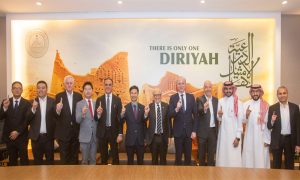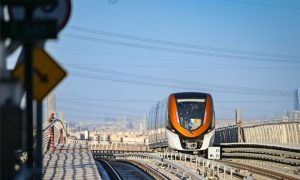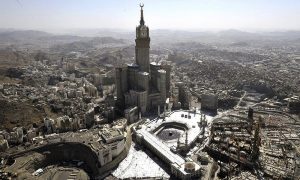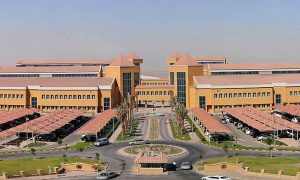Project Qatar – Waiting for kickoff
CMME takes a look at whether Qatar is ready to finally ready to kick off its World Cup spending


quick straw poll of equipment companies in the country by CMME over the last month has revealed that most are turning their attention to the early part of next year.
CMME takes a look at whether Qatar is ready to finally ready to kick off its World Cup spending
Soon after winning the bid to host the FIFA World Cup, the triumphant victors were quick to assure that despite a desperate lack of infrastructure and a daunting programme of stadia construction it would be ready on time. The year was 2007, the country Brazil.
With a year to go, Anand Hemnani, the chief investment officer of Sao Paulo-based CG/LA Infrastructure, recently told CNBC that his earlier fears that the South American country would fail to get its roads, airports and venues ready in time were unfounded.
“Not only the national government but the subnational governments are collaborating with Brazilian National Development Bank and the key pension funds are fast-tracking their priority projects. The rhetoric has somewhat changed in that there is a real sense in long-term planning,” he said.
The Brazilian government has grown markedly bolshier as the event draws closer.
“We are ready, the infrastructure is being prepared, the stadiums are all being built, we are going to have an incredible collection of stadiums in Brazil,” said finance minister Guido Mantega. “Brazil will be prepared to win the World Cup.”
Going on the Brazilian timeline, Qatar is still some years away from needing to hit the panic button, but there has been discomfort that the expected avalanche of contracts and tenders has failed to surface. Beneath the ground progress has been better since the award of several infrastructure and utility packages. If Ashghal was running the World Cup construction, it would be ready by the time Rio de Janeiro opens for the Olympics in 2016.
2013 has seen some promising signs that Qatar is releasing funds for construction, although most of appears to be been directed at the longer term 2030 Vision programme of social infrastructure investment. As the first quarter of 2013 drew to a close, Qatar announced the largest budget in its history, allocating $57.9 billion – up from $49 billion in 2012 – for spending for the year 2013/2014. Whether this budget will translate into actual construction is yet to be seen.
Last year’s Project Qatar show was full of companies that were there to show face rather than make deals and the upcoming event this month will be a chance to find out whether that is still the case. A quick straw poll of equipment companies in the country by CMME over the last month has revealed that most are turning their attention to the early part of next year. According to Standard Chartered the continuing malaise in the market will have an inevitable effect on the cost of construction.
“We expect the prices of building materials and certain raw materials to begin to rise, and domestic transport and logistics costs are also likely to feel the pressure. In Q1-2013 we have seen positive signs related to Qatar’s spending commitments for FIFA 2022,” it said.
“In addition, so far this year, the government has awarded a number of projects related to the country’s decade-long infrastructure commitments,” it reported. “Some of these projects should break ground by H2-2013. Between now and 2022 we expect almost $115bn of government expenditure on infrastructure projects and FIFA 2022. We expect near-to medium-term spending trends to focus primarily on delivering core infrastructure. Sport-related infrastructure (i.e. football stadia) is more likely to begin midway through Qatar’s decade-long spending cycle.
Foreign companies wanting to land lucrative infrastructure projects in Qatar will need to reconsider their approach to the tender process, according to experts assembled for the MEED Qatar Infrastructure Projects conference in London last summer.
“With more than $70 billion worth of major projects to be awarded until 2022, Qatar remains one of the most robust global markets for construction companies. However, tendering for the major contracts will require more transparency on the part of contractors as the Gulf state seeks to appoint partners that can satisfy the technical and financial requirements of each project while showing their genuine commitment to the National Vision 2030,” said Stuart Curtis, Group Managing Director, The Links Group.
According to Ian Lyne, Director of Development Strategy, Place Dynamix (Middle East) and previously Project Manager of the multi-disciplinary team responsible for the preparation of the Qatar National Master Plan, procurement in the Gulf State has slowed as it re-evaluates development priorities ahead of the 2022 FIFA World Cup. However, he says Qatari clients are using this period of reflection to ensure they bring in the right expertise to deliver their massive infrastructure projects on time and to specification with minimal risk of additional contractual claims.
The New Doha Port, for example, has moved its tender and bid process online in an effort to make the tender process more efficient, competitive and to improve the overall quality of submissions. All details of past, current and future tender packages are now available on its Website. The authority also publishes the names of all companies who apply for prequalification as well as the names of those who get shortlisted.
“We are trying to improve transparency between the client and bidders,” explained Engineer Nabeel Mohammed A. R. Al Buenain, Project Executive Director, New Doha Port, “Some companies have complained to us about publishing their names when they have not prequalified, but we believe this creates a more competitive and fair marketplace. There are six criteria which bidders must satisfy before tendering for our projects. They must have acceptable cash flow, experience in the field, the right equipment, skills and staff and be committed to the project and Qatar. It is very important that submissions demonstrate capability in each of these areas.”
While New Doha Port’s tender portal has received some criticism from contractors, James Brenan from law firm Herbert Smith says it is an approach clients have to adopt in order to attract world class contractors.
“What we have now is a cultural disconnection between clients and companies. Contractors need to change the way they approach a deal, adding more value beyond contractual communications by bringing new ideas and being innovative. Companies have to manage the client relationship as much as the contract. It can mean the difference between succeeding and losing the bid,” said Brenan.



















